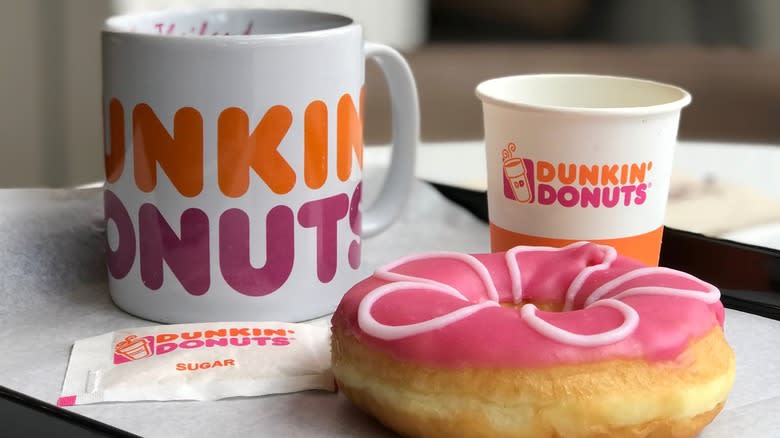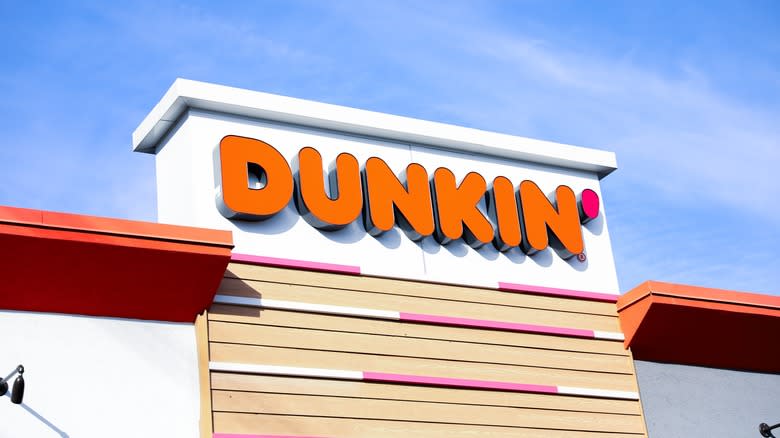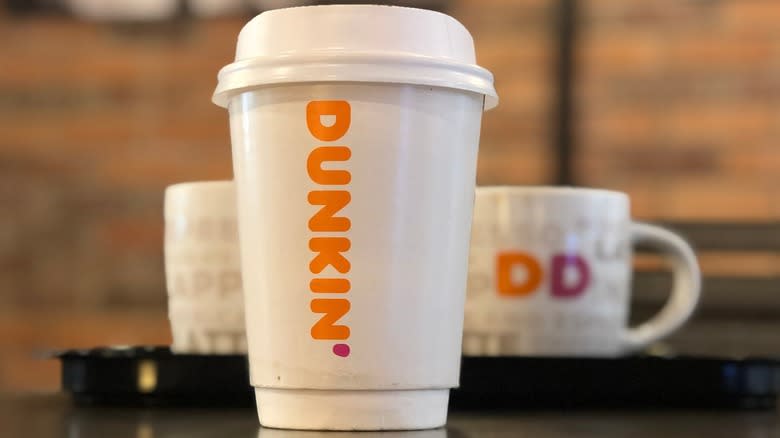The Dunkin' Coffee Fact We're Honestly Surprised About

While Dunkin's signature product is its donuts, coffee has formed a core part of the company's identity since its inception. World War II jumpstarted the company that became Dunkin' Donuts, but its original name was actually Open Kettle. In part, the 2019 rebrand to just Dunkin' was designed to keep the focus on the coffee as much as the company's baked goods. As a result, Dunkin' coffee is often seen as a cut above its closest competitors. Indeed, many of its drinks are popular enough that people pine for them when they're no longer on the menu (fortunately, it's easy to hack Dunkin's discontinued Dunkaccino).
A big part of this has to do with the company's own standards around how it makes its coffee, and specifically, the 18-minute rule. Dunkin's website is very clear on this point: "If not used within 18 minutes, Dunkin' Donuts coffee is discarded and a new carafe is freshly brewed." This is supposed to ensure that every customer gets a fresh cup of coffee ... but is that actually how it works in practice? If Dunkin' employees are to be believed, that might depend on which store you're patronizing.
Read more: 16 Popular Energy Drinks, Ranked By Customer Reviews
Different Franchises Likely Have Different Standards

In a Reddit thread from six years ago, a user asked whether Dunkin' really did throw out coffee after 18 minutes. The responses were mixed, to say the least. Though one employee said their location followed the rule "religiously," others went in the diametrically opposite direction. One claimed they tried to make a new pot every half hour while they were slow, but another said that management dictated they should just re-mark the time stamps on the carafes so as not to waste any coffee.
These are anecdotes from social media users claiming to be employees, so take them with a grain of salt, as there's no evidence that franchises are failing to follow this rule on a large scale. Still, it's perhaps not surprising if these standards vary, as Dunkin' is one of many fast food companies that operates on the franchise system. In contrast to corporately-owned stores, where the company has the ability to manage every aspect of the business, different franchises sometimes act according to different standards based on owner priorities and willingness to spend money.
But while the 18-minute rule would be difficult if not impossible for the parent company to strictly enforce, it's likely that most franchise owners do at least make an attempt to stick to it. Typically, if a franchisee of any corporation is found to be violating the rules, their parent company would be well within its rights to terminate the franchise agreement.
Dunkin' Is Really Serious About Its Coffee Quality

Of course, there are plenty of other ways that Dunkin' tries to ensure that the coffee it sells meets its own rigorous standards. Part of the reason its coffee is so well-regarded is Dunkin' apparently has its own exacting specifications for its production, using 100% Arabica coffee beans specially milled and processed for it and it alone. Dunkin's coffee is also rigorously tested, with batches thrown out if any irregularities are noticed. The company is also certified with the Rainforest Alliance, which ensures that its products are grown and harvested sustainably.
On the whole, these standards along with the 18-minute rule paint a picture of a company that very much cares about the quality and consistency of its signature product. It's just not entirely clear how universally those standards are applied. But hey, at least you can be assured of the consistency of the store-bought spiked versions of Dunkin's beloved iced coffee and tea.
Read the original article on Daily Meal


